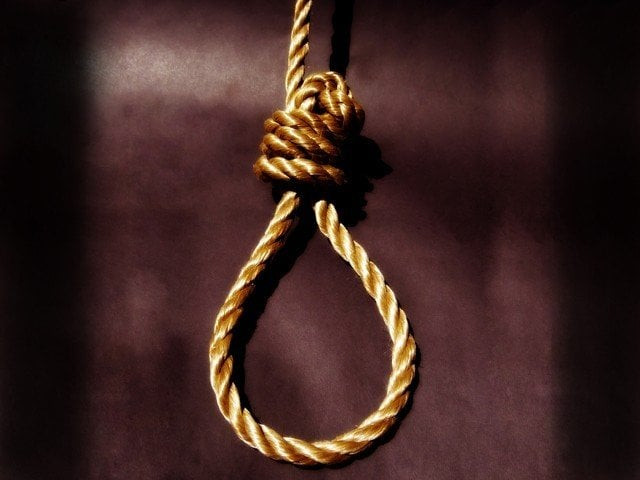LHC stays execution of another death row convict
A special anti-terrorism court had issued Faiz's death warrant on Decemberber 25

Challenging his execution order, Faiz had pleaded that his appeal was pending before the supreme court and till apex court gives verdict on his appeal his black warrants can not be issued. STOCK IMAGE.
The bench, while staying the execution of Muhammad Faiz till January 5, summoned the superintendent of Faisalabad jail, who had obtained death warrants for the convict.
It also sought explanation from the anti terrorism court as to how the black warrants were issued when Faiz’s appeal was pending before the Supreme Court.
Faiz had been condemned to death by an anti-terrorism court in 2006, for killing an army official Lance Naik Tariq Mahmood, in Nankana Sahib.
After his death sentence was confirmed by the LHC, Faiz had filed an appeal before Supreme Court, which had granted leave to appeal.
A special anti-terrorism court on December 25, 2014 issued black warrants for Faiz on an application filed by Faisalabad jail superintendent and had fixed January 14 for his execution.
Challenging his execution order, Faiz had pleaded that his appeal was pending before the supreme court and till the apex court rules on his appeal, his black warrants can not be issued.



















COMMENTS
Comments are moderated and generally will be posted if they are on-topic and not abusive.
For more information, please see our Comments FAQ